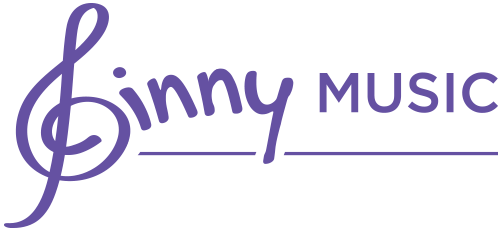
"I want to teach music lessons from my home..."
Jul 29
3 min read
0
26
0

"I want to teach from home, but I have no idea how to even begin! Where do I start?"
Great question. There's no short, easy answer, but here are a few things to consider:
Define Your Goals: Why do you want to begin teaching from home? Are you trying to increase your household income? If so, by how much? Do you want to spend more time with your family? Do you want to have a more flexible schedule? Do you want to make an impact in your community? Do you love teaching and music is your content of choice? Begin with the end in mind: what would make this endeavor successful in your eyes? Write these answers down, edit them as you go, and refer to them frequently; they will keep you on course and hold you accountable.
Assess Your Skills and Qualifications: Make sure you are proficient in your instrument(s) and have a good understanding of music theory. Teaching requires not just playing skills but also the ability to communicate effectively and impart knowledge to students. Teaching takes a very different skill set than playing your instrument. That being said, everyone has to begin at the beginning; you will learn how to teach by teaching. Let your first students know you are just starting to teach and charge accordingly.
Analyze Your Space: Can you designate a space in your home where you can comfortably teach lessons/classes? It should be clean, well-lit, quiet, and free from distractions. Consider parking, entry areas, household pets, and restroom access.
Think through the logistics: How will teaching from home affect your family's routine/schedule? What will your kids do while you teach? Look through your calendar for the previous 12-18 months and think how a private teaching schedule would impact your lifestyle, for better AND for worse (I assure you, it will be a bit of both!). Think through sports seasons, sick days, transportation for your children, holidays, meal preparation, weather issues, family traditions, vacations... this will impact pretty much everything in one way or another.
Evaluate Your Equipment: Ensure that you have an instrument in good condition for teaching. You might need a piano or keyboard, seating for you and your students, music stands, technological resources, teaching materials such as method books, sheet music, theory books, games, percussion instruments, and a place to store those materials (shelves, bins, filing cabinet, etc.).
Determine Your Teaching Approach: Think through and articulate your teaching style and philosophy. Will you focus on classical music, contemporary, or a mix of genres? How will you tailor lessons to each student's goals and abilities? Will you provide performance/competition opportunities? Do you have a niche market (fiddle/bluegrass, worship music, special ed. training, bilingual, etc.)? Having a clear approach will help you attract the right students.
Research Your Rates: Find out the going rates for piano lessons in your area and decide on your pricing structure. Consider your level of experience, the local market, and the value you provide as a teacher.
Review Curriculum/Methodology: Research the various approaches to teaching your instrument and music literacy. Decide if you'll use method books or do your own thing. Develop a plan that outlines the structure for your lessons. This could include games, improvisation, ear-training, scales, exercises, technique, music theory, and repertoire. As you teach, you'll want to adapt your plan based on the age, interest, and skill level of your students.
Once you're ready to move forward...
Market Your Services: Spread the word about your studio through various channels such as social media, local community boards, word-of-mouth referrals, and online platforms for music teachers. Create a website or online profile where potential students can learn more about you and your teaching approach.
Prepare Contracts and Policies: Write down your teaching policies, including lesson duration, cancellation policies, payment terms, and expectations for student practice. This helps set clear boundaries and expectations for both you and your students.
Cover Your Assets: Talk to your home/renters insurance agent about what coverage you should add for your home business. Work with an accountant to determine the best way to handle taxes.
Stay Organized: Keep track of your schedule, student progress, and lesson plans. Consider using scheduling software or lesson planning apps to stay organized and efficient.
Continuously Improve Your Skills: Stay updated on teaching techniques, music trends, and pedagogical methods by listening to podcasts, reading online, and attending workshops, conferences, or online courses. Continuously seek feedback from your students to improve your teaching effectiveness.
Where are you in the process? Where do you get stuck? Tell us about it in our Facebook community and we'll share ideas to help you along in your journey.




